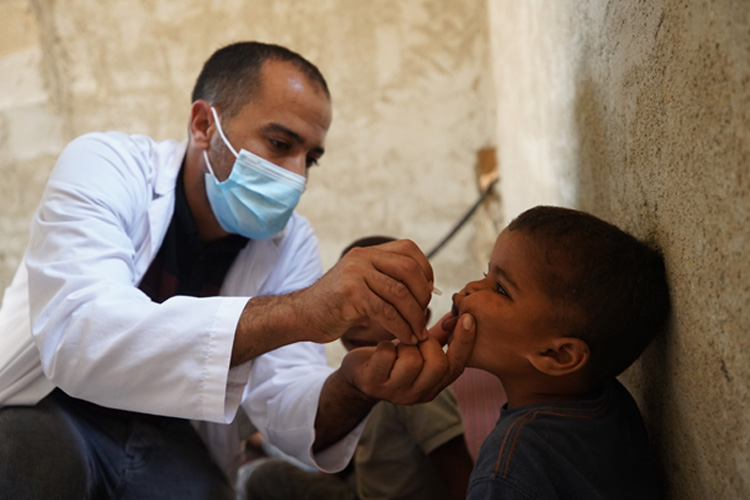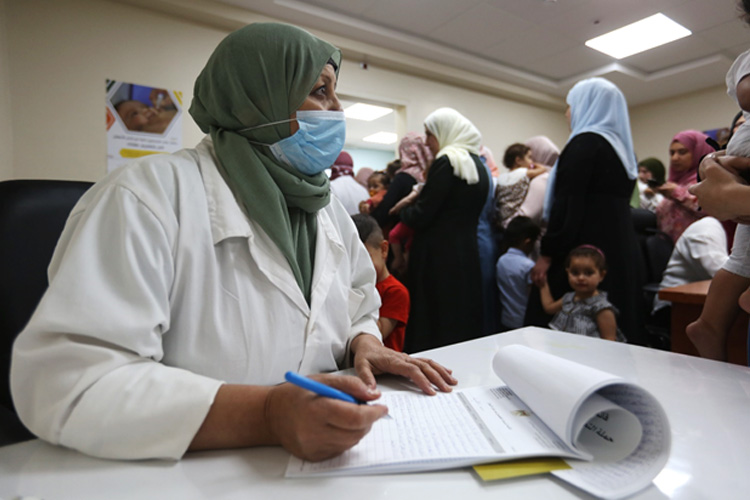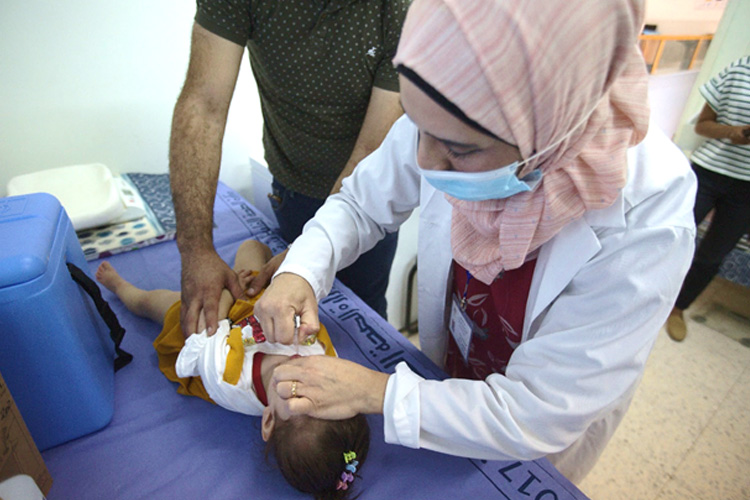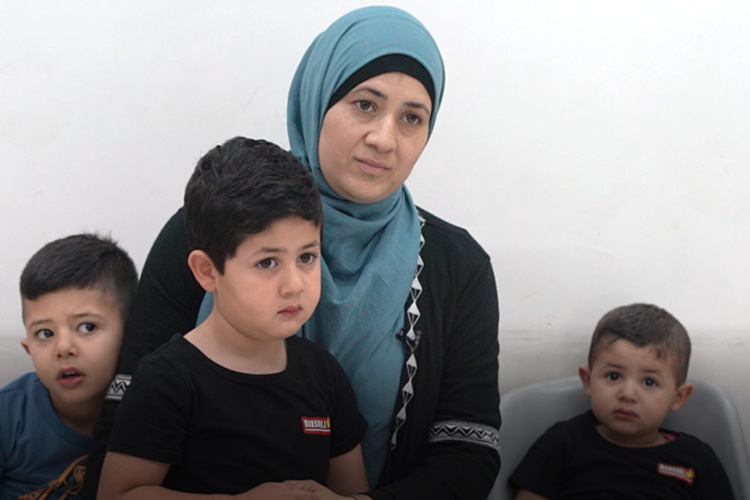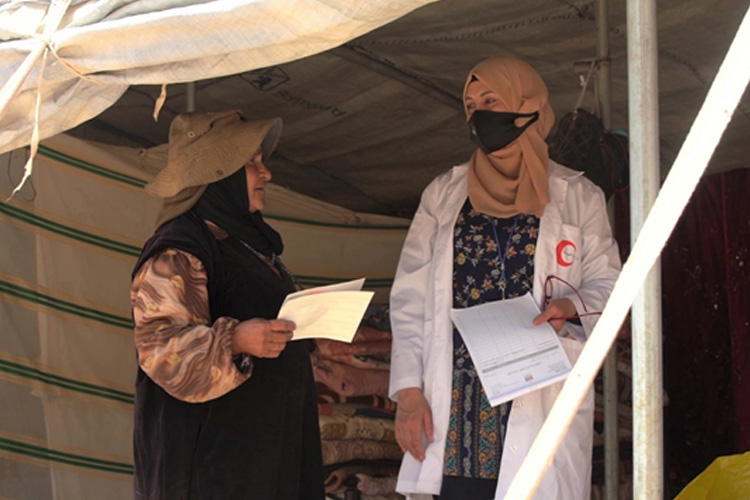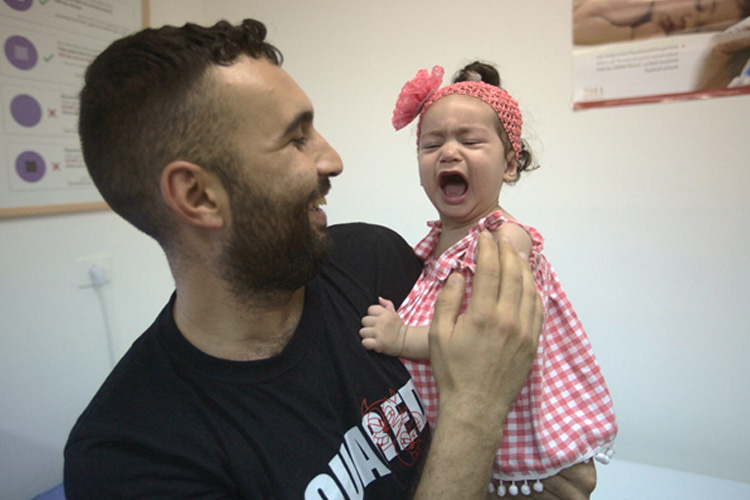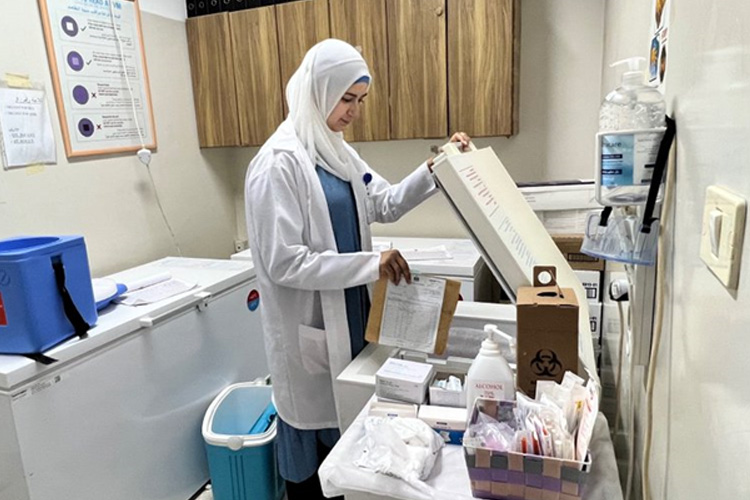28 June 2022 - Between Saturday 18 June and Wednesday 23 June, health workers across Bethlehem and Jerusalem governorates, supported by WHO, UNICEF and UNRWA, gave an extra dose of polio protection to children under five during round two of the polio vaccination campaign.
Palestine has been polio-free for more than 25 years, but the regional risk of poliovirus is increasing. Following the detection of circulating vaccine-derived poliovirus type 3 (cVDPV3) in sewage outflow in Wadi Alnar site, where there is a junction between wastewater coming from inside the green line with wastewater coming from Bethlehem and Jerusalem, the Ministry of Health launched a preventative vaccination campaign to boost children’s immunity in those governorates.
The campaign saw children vaccinated at Ministry of Health and UNRWA health facilities, and through mobile health teams working in remote areas. The occupied Palestinian territory is a diverse place, in environment and culture, and though the campaign covered just two governorates, its story can be told in the faces and voices of those who took part.








